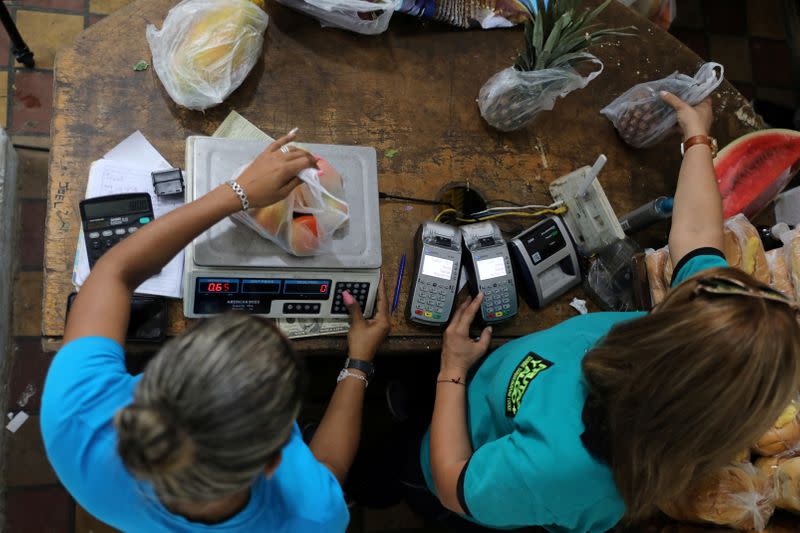CARACAS, (Reuters) – Venezuela will today launch its second monetary overhaul in three years by cutting six zeros from the bolivar currency in response to hyperinflation, simplifying accounting but doing little to ease the South American nation’s economic crisis.
The plan seeks to simplify accounting at businesses and banks, where systems can no longer handle the huge figures. Venezuela’s year-on-year inflation is 1,743%, according to the Venezuelan Finance Observatory. A minimum wage salary is barely $2.50 per month.
“The (monetary) conversion does not change anything, because the problems in the country continue,” said Victor Mendez, a 56-year-old accountant while buying food in Caracas. “We continue to suffer from a lack of water and gasoline.”
President Nicolas Maduro’s government in 2018 removed five zeros from the currency due to high prices. That came a decade after the late President Hugo Chavez subtracted three zeros from the bolivar with the promise of single-digit inflation, which was not achieved.
The once-prosperous OPEC nation is suffering a years-long economic crisis that has led millions of Venezuelans to emigrate. Maduro’s socialist government blames U.S. sanctions for the country’s woes, while critics assign responsibility to interventionist macroeconomic policies.
The widespread adoption of the U.S. dollar for commercial transactions in Venezuela will further dilute the relevance of the new scheme. Bolivars in cash in Venezuela are rarely used for routine purchases. Three-quarters of the paper money that circulates is used for bus tickets, according to two banking sector sources.
“The economic imbalances in the country are very acute and the zeros that are being removed today will soon return,” said economist Jose Manuel Puente. “The reconversion will have no impact in macroeconomic terms.”
Banks have begun receiving some low-denomination bills of the new family of notes, which will for a time co-exist with existing 500,000- and 1 million-bolivar notes.

